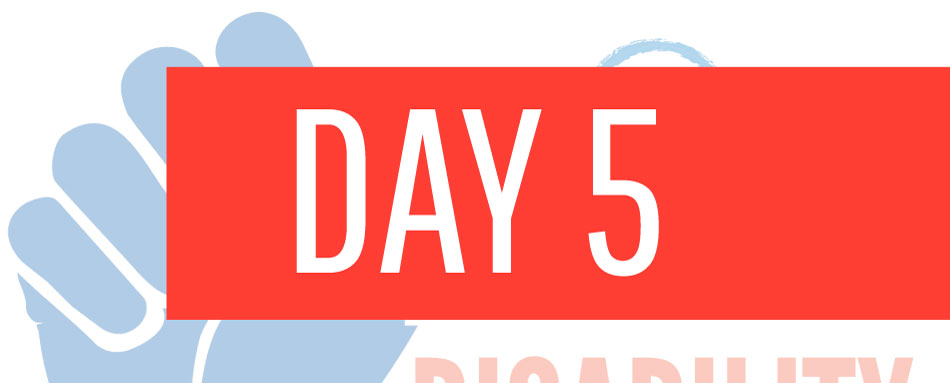
The term “Inspiration Porn” was coined by the Australian comedian and activist Stella Young to refer to the “objectification of disabled people for the benefit of non-disabled people,” and it is now widely used throughout the disability community.
Inspiration porn consists of images, stories, and media that portray people with disabilities as objects of inspiration. Typically, there’s a message that goes something like this: “The only realdisability in life is having a bad attitude.” Such messages imply that if this “poor,” “lowly,” or “less-than” disabled person can manage to smile in “their condition,” then non-disabled people have no excuse for lacking positive attitudes. With the rise of social media, these images are shared widely across the world, which only perpetuates negative views on disability and the patronization of disabled people.
Due to society’s lower expectations, people with disabilities are often given awards or special recognition for simply existing and doing things that are not out of the ordinary for them. There are countless stories from people with disabilities about strangers showering them with compliments for just being out in the world living their lives. At the core of this behavior is an assumption that people with disabilities struggle to enjoy their lives because their mere existence is only defined by suffering.
Additionally, focusing on individual perseverance and the idea of “overcoming” disability shifts attention away from systemic barriers that need addressing. It diminishes the importance of creating accessible public spaces, inclusive education, and equal employment opportunities. This unjustly suggests that the burden is on disabled people to adapt and “try harder,” rather than on society to become more inclusive and accommodating.
People with disabilities can be inspiring, but the inspiration should come from their achievements and actions, not from merely existing with their disabilities. Many individuals accomplish amazing things, and disabled people are no different in this regard. Praising them solely for performing everyday tasks while being disabled is not genuine inspiration. True inspiration arises from recognizing their contributions and successes.
Inspiration porn is very harmful to both disabled and non-disabled people. It gives society an incorrect and offensive view of people with disabilities, while minimizing the challenges many people face when navigating an often-unjust society—whether they have a disability or not. It also sends the message that disability alone makes a person exceptional and overcoming disability is admirable. As Stella Young said, “Disability doesn’t make you exceptional, but questioning what you think you know about it does.”
![[Image description: A photo of Stella Young, a White woman with short, strawberry blonde hair, sitting in her power chair and smiling while she gives her famous TED talk in 2014.
Attribution: TEDx Sydney (2014).]](https://unitedforscmi.org/wp-content/uploads/2022/08/dec5-1024x683.jpg)
[Image description: A photo of Stella Young, a White woman with short, strawberry blonde hair, sitting in her power chair and smiling while she gives her famous TED talk in 2014. Attribution: TEDx Sydney (2014).]

Read
- Stella Young, ABC Ramp Up – We’re Not Here for Your Inspiration
- Simi Roach, The Wheelchair Teen – Inspiration Porn vs. Actual Inspiring People
- Andrew Pulrang, Forbes – How to Avoid “Inspiration Porn”
- Angela Kyle, Pulse – Objectification + Disability = Inspiration Porn

Watch
- Stella Young, TEDx Sydney – I’m Not Your Inspiration, Thank You Very Much (9:02, includes captions and transcript)
- Annie Elainey – What is Inspiration Porn? (7:32, includes captions and transcript)
- Ahmed Khalifa, Hear Me Out! – How “Inspiration Porn” Can Affect Deaf People (11:26, includes captions and transcript)

Listen
The Accessible Stall with Kyle and Emily Podcast – Episode 16: Inspiration Porn (50:17, transcript here)
Discussion
- Do you agree with Stella’s statement that disability doesn’t make a person exceptional? Why or why not?
- What are some examples of inspiration porn that you have seen on social media or in movies or TV?
- How do you think being the object of inspiration porn impacts people with disabilities?
